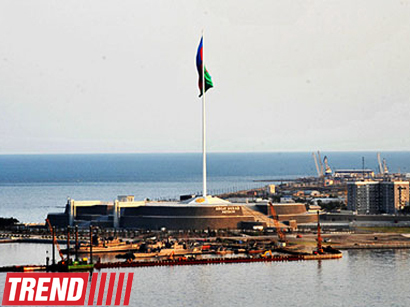Baku, Azerbaijan, April 28
By Elchin Mehdiyev - Trend:
Baku does not see any changes in the situation over the settlement of the Nagorno-Karabakh conflict, Azerbaijani Deputy Foreign Minister Araz Azimov told media on April 28.
"Armenia must assess the current situation which may worsen in the country and around it," he added. "The Armenian leadership must think it over."
Azimov said that during the last summit of the EU "Eastern Partnership" program, the Armenian president saw that his country was left alone and no one openly supported it.
While speaking about the impact of cold relations between Russia and the U.S. on the Nagorno-Karabakh settlement, Azimov said that they are one of the major players in the international arena.
"These two countries have the largest stocks of nuclear weapons," he said. "The international position, the entire situation may depend on the willingness of the U.S. and Russia to take risky actions. The cooperation between the U.S. and Russia is being tested in connection with the Ukrainian events. Each side seeks to find a solution through diplomatic ways. Moreover, the U.S. is engaged in imposing the sanctions against Russia again amid the ongoing discussions, the Geneva agreement."
Azimov stressed that the matter rests in a serious test of the international situation, which systems have been formed for many years, rather than the worsening of relations.
"The U.S. and Russia experienced such difficult situations in the past," he added. "I hope that they will also find a way out in this case. But, of course, because of the situation in Ukraine, Europe, U.S and Russia faced with very complex issues. It would be undesirable for the processes taking place as part of the OSCE Minsk Group to be used because the process must be built on the basis of norms and principles of international law."
"Perhaps, the Armenian public can compel the country's leadership to assess the situation, Azerbaijan's position through public diplomacy," he added.
"If the social forces in Armenia have an impact on the president, the country's leadership by using the public means, perhaps, it will be possible to talk about more serious role of public diplomacy," he said. "But at present, I do not see this. Even if in general Armenia has pluralism, unfortunately, it is not seen. Unfortunately, we are not witnessing pluralism in connection with the Nagorno-Karabakh conflict settlement either."
The conflict between the two South Caucasus countries began in 1988 when Armenia made territorial claims against Azerbaijan. As a result of the ensuing war, in 1992 Armenian armed forces occupied 20 percent of Azerbaijan, including the Nagorno-Karabakh region and seven surrounding districts.
The two countries signed a ceasefire agreement in 1994. The co-chairs of the OSCE Minsk Group, Russia, France and the U.S. are currently holding peace negotiations.
Armenia has not yet implemented the U.N. Security Council's four resolutions on the liberation of the Nagorno-Karabakh and the surrounding regions.
translated by NH
edited by CN






